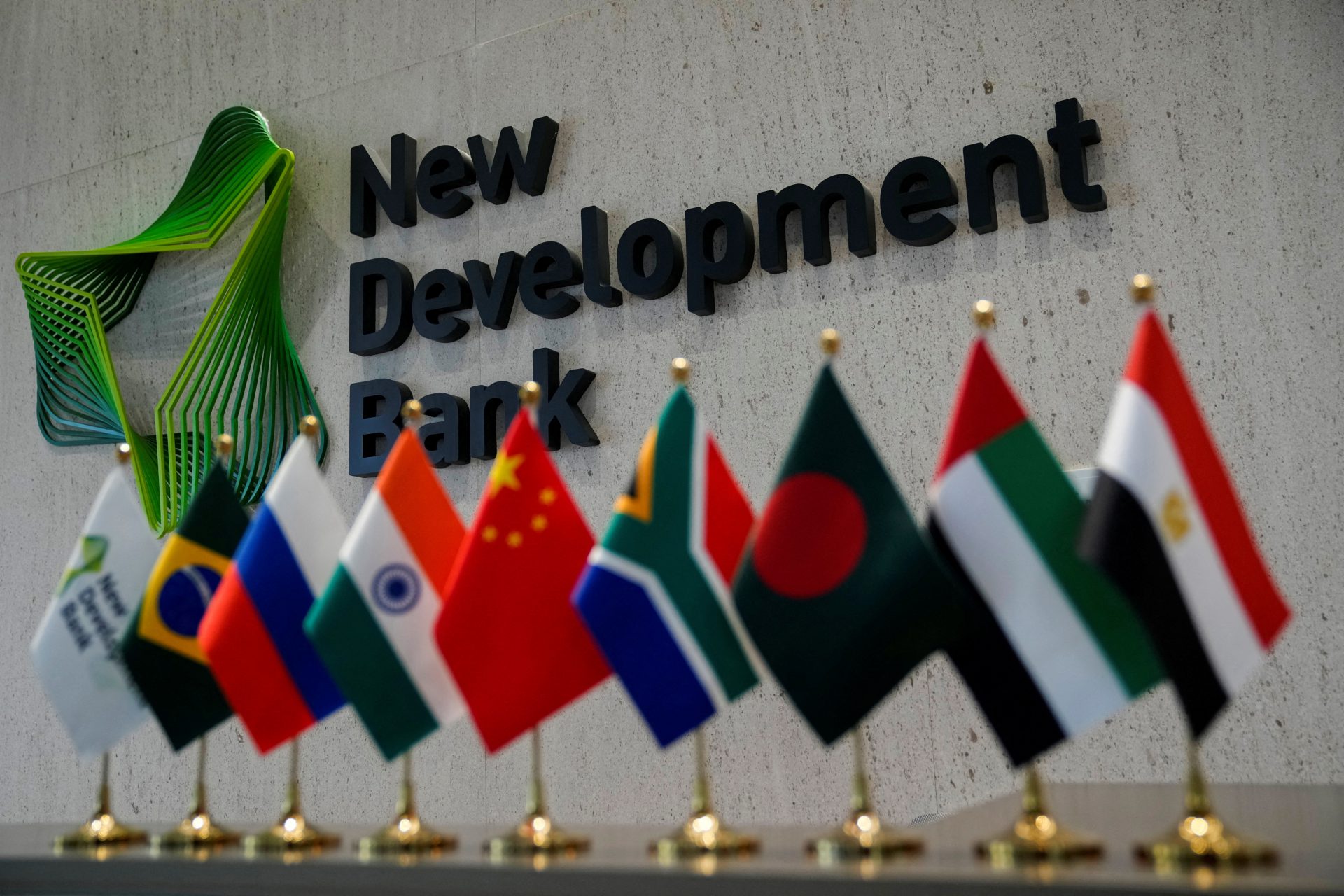BRICS seeks to expand its membership and become a champion of the "Global South," with over 40 countries expressing interest in joining the bloc to challenge Western dominance and address grievances related to abusive trade practices and neglect of poorer nations' development needs, among others. However, observers note that BRICS has a limited track record and may struggle to deliver on expectations.
The BRICS economic coalition is close to expanding its membership, with criteria and procedures already in place, according to South Africa's Ambassador to BRICS, Anil Sooklal.
The Brics economic group, consisting of Brazil, Russia, India, China, and South Africa, is discussing the possibility of expanding its membership and promoting the use of local currencies for trade settlement, with aims to challenge the dominance of the US dollar, but analysts believe that the greenback is unlikely to lose its status as the international reserve currency.
The New Development Bank of the BRICS group will not be announcing new members at the BRICS Summit in South Africa, according to Leslie Maasdorp, the bank's Chief Financial Officer, who stated that the process of ratifying new countries is happening without the bank's involvement.
The New Development Bank (NDB) of BRICS, a bloc comprising Brazil, Russia, India, China, and South Africa, is reviewing applications from 15 countries as it aims to diversify its geographical location, potentially adding five new countries, including Saudi Arabia and the UAE, which could provide funding and boost the bank's financial prospects while potentially reducing reliance on the US dollar.
BRICS, comprised of Brazil, Russia, India, China, and South Africa, now represents almost a third of global GDP and is surpassing the economic influence of the G7, with over 40 nations expressing interest in joining.
Six new countries, including Argentina, Iran, the United Arab Emirates, Saudi Arabia, Ethiopia, and Egypt, have become members of the BRICS alliance, as announced by South African President Cyril Ramaphosa during the summit.
Indian Prime Minister Narendra Modi addressed the 15th BRICS Summit and emphasized the potential for BRICS and friendly countries to strengthen a multipolar world, while announcing the admission of six new countries into the bloc starting next year. He also highlighted India's cooperation with Africa, the success of Chandrayaan-3, and India's growing trade partnership and investment in Africa.
South Africa's finance minister says that the BRICS grouping will not replace international payment systems like SWIFT but will explore creating one that strengthens trade in local currencies.
The BRICS summit is aiming to reduce reliance on the U.S. Dollar, as the coalition confirms new members including UAE, Egypt, Ethiopia, Saudi Arabia, and Argentina, and discusses the possibility of a new payment system and currency backed by gold.
The New Development Bank created by BRICS countries in 2015 can provide financial support for African countries' projects to address urgent challenges, according to former Brazilian President Dilma Rousseff.
Chinese President Xi Jinping announced at the BRICS leaders' summit in South Africa that the group is inviting six countries to join and also launching a $10 billion special fund to bolster global development, emphasizing the expansion's vitality for cooperation and the common interests of emerging markets and developing countries.
The BRICS alliance has inducted six new countries into the bloc during the summit in Johannesburg, and South Africa's President Cyril Ramaphosa has confirmed that a second phase of expansion will follow in the coming months.
Egypt hopes that its inclusion in the BRICS bloc will help alleviate its shortage of foreign currency and attract new investment, although analysts suggest that it may take time before the benefits become evident.
BRICS is considering making local currencies the only accepted form of payment for oil and gas settlements, which could potentially shift global power from the West to the East.
The BRICS expansion and their de-dollarization efforts have been met with a relatively calm response from the US, Germany, and the European Union, emphasizing the importance of countries choosing partnerships based on their national interests.
The extended BRICS alliance, which now includes six new countries, has a GDP in purchasing power parity (PPP) that accounts for more than one-third of the global economy, giving them the potential to control exports of oil to the West and influence trade settlement currency choices.
The BRICS alliance is considering the creation of a 'single unit account' as an alternative currency to the US dollar, in order to settle cross-border transactions without depending on a single currency or local currencies.
The BRICS expansion, which includes countries like Saudi Arabia, the UAE, and Iran, has raised concerns in the U.S. and EU as it poses a threat to Western-dominated financial markets, while China's influence grows and the alliance aims for de-dollarization in global trade.

